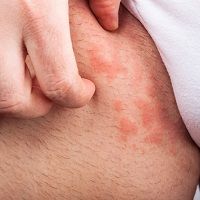Article
Does Milk Help or Harm Children with Atopic Eczema?
Author(s):
Science and medicine have licked some of the nastiest afflictions the world has ever seen. But if a child has eczema, should he or she drink milk? The answer is still unknown.

Science and medicine have licked some of the nastiest afflictions the world has ever seen. But if a child has eczema, should he or she drink milk? The answer is still unknown.
Clinical research leads to astonishing advances. Hepatitis C, still a prevalent and often dormant condition, affects as many as 400 million people worldwide; but over the past few months, two medications with astounding success rates amount to more or less a cure for patients. Cancer therapy often amazes. Tetanus, polio, and measles — all once deadly in their day – have been mostly wiped off the global map. However, milk’s role in eczema remained a mystery, until possibly now.
Milk contains calcium and vitamin D, both of which are crucial for building bone health, among other benefits. However, the National Eczema Foundation and many others list dairy products alongside eggs, nuts, soy, and wheat among the food allergens that can cause eczema. Other studies suggest organic milk or soy milk may be better for children, but see the previous sentence: soy is in that list as well. And the hard evidence is conflicting.
A recent study in Clinical and Experimental Dermatology suggests that children with atopic eczema (AE) may, in fact, benefit from drinking dairy beverages. The study looked at more than just dairy consumption; it looked at consumption of beverages overall, using parent-reported frequency of consumption of beverages and linking that to AE disease severity as measured by the Nottingham Eczema Severity Score (NESS). The study also used a quality of life index, the Children’s Dermatology Life Quality Index, and other clinical measures, including skin hydration, blood pressure, resting heart rate, and body mass index.
The research found that compared with children without AE, there was a trend for children with AE to drink less milk (P = 0.06) and more miscellaneous beverages (such as Chinese herbal tea and soymilk; P = 0.03). In children with AE, NESS correlated with CDLQI (ρ = 0.66, P < 0.001) and reduced skin hydration SH (ρ = −0.32, P < 0.001), whereas CDLQI correlated with a higher resting heart rate. Analysis showed that male sex and drinking fresh milk were independent factors associated with less severe disease. Further, in terms of cardiovascular health, soft drink consumption was associated with higher systolic blood pressure.
The authors noted that parental guidance and close observation are still warranted in children who have AE. However, the findings add to the evidence that milk consumption may do more good than harm.
“With these results being supported by a literature review, it is reasonable to advise parents that fresh milk can be consumed by unsensitized children with AE,” the study authors concluded. “Soft drinks and other beverages should not be consumed in excess for optimal cardiovascular health and for other health reasons.”





